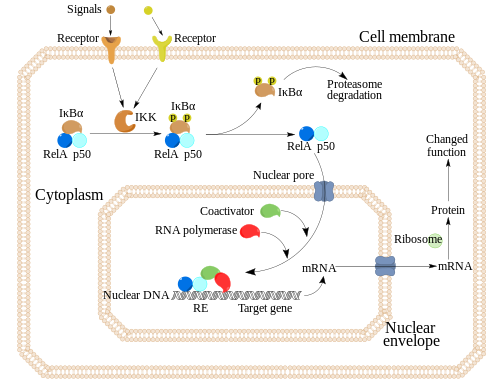Commensal gut bacteria and immune modulation

After the development of a cell reporter system for NF-kB pathway and identification of new potential therapeutic molecule by metagenomic screening, INRA scientists have focused directly on intestinal bacteria isolated in the laboratory. The ability to modulate the NF-kB pathway, central for immune response, was studied for 49 commensal strains.
Interestingly, according to the cell lines, enterocytes or colonocytes, the modulatory capacity of commensal bacteria was different and was correlated for some of them with the presence of butyrate or propionate, which are known to be energetic for intestinal cells.
“The cell-based screening method employed in the present study provides a rapid identification of potentially interesting commensal species, however their effects require further confirmation and characterization using other techniques of NF-κB detection. Moreover, the potential implication of these commensal bacteria and their host cells regulating properties in human health and disease may need to be evaluated.” Lakhdari et al
- Identification of NF-kappaB modulation capabilities within human intestinal commensal bacteria. Omar Lakhdari, Julien Tap, Fabienne Beguet, Karine Le Roux, Tomas de Wouters, Antonietta Cultrone, Malgorzata Nepelska, Fabrice Lefèvre, J. Doré, and Hervé Blottière. Journal of Biomedecine and Biotechnology 2011.